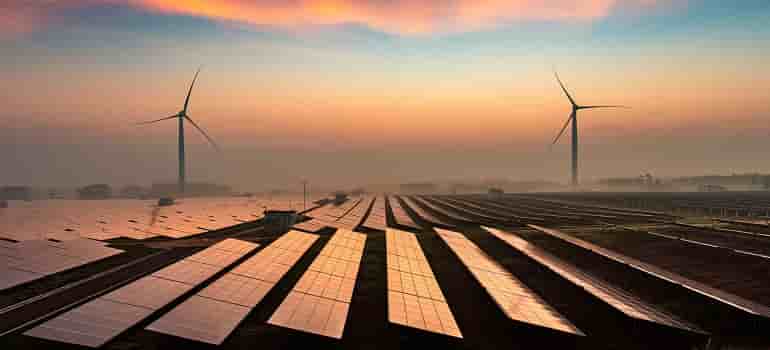Companies and Organizations Worth $12 Trillion Call for Urgent Action at COP28
Leading companies and organizations, representing a collective market value exceeding $12 trillion, have joined forces across continents to issue an impassioned plea to global leaders. In an open letter, they urgently call for a commitment to triple the world’s renewable energy capacity to 11,000 gigawatts (GW) by the year 2030, a vital target set to be discussed at COP28 later this year.
This call to action emanates from a diverse coalition of stakeholders within the energy sector, including international governmental bodies, producers, consumers, supply chain participants, civil society, environmental advocates, and the youth. Remarkably, approximately half of the signatories hail from regions including the Asia-Pacific, Africa, and Latin America. Their shared conviction centers on the transformative impact of dramatically expanding renewable energy capacity by the end of this decade and underscores the pivotal role COP28 plays in translating aspirations into tangible actions necessary to stay on course for a 1.5°C global warming trajectory.
According to the latest insights from the International Renewable Energy Agency’s World Energy Transitions Outlook (WETO) for 2023, immediate and substantial corrective measures are imperative to limit global warming to the desired 1.5°C. Achieving this objective demands nothing short of tripling the world’s renewable energy capacity to a minimum of 11,000 GW by 2030, coupled with a twofold increase in energy efficiency improvements. The enormity of this endeavor calls for an annual investment of around $4 trillion in transition technologies. This commitment is vital for the rapid deployment of renewable energy sources such as wind, solar, hydropower, geothermal, and others, which will serve as the foundation for scaling up technologies like green hydrogen and long-duration energy storage beyond 2030.
The open letter, spearheaded by the Global Renewables Alliance, emphasizes that “a step change this decade in renewable energy growth, combined with an increase in energy efficiency, will be the fastest and most cost-efficient way to decarbonize the global economy. It is one of the most impactful commitments that the global community can undertake now to secure a livable future for all.”
Prominent initiators, supporters, and signatories of this pivotal letter include the Global Renewables Alliance members, the International Renewable Energy Agency (IRENA), COP28 Presidency, UNIDO, The Nature Conservancy, the Climate Group, American Clean Power, RE100, WBCSD, We Mean Business, REN21, RMI, and notable corporations such as Adani, AES, Amazon, Apple, CIP, CEPSA, Corio, DNV, ERM, EY, GCL, Google, Huawei, Microsoft, Ørsted, PepsiCo, ReNew, SSE, TES, Unilever, and Vestas. Together, the publicly listed signatories represent a staggering market value exceeding $12 trillion, equivalent to the combined GDP of Japan, India, and Germany.
Francesco La Camera, Director-General of the International Renewable Energy Agency, expressed his support, saying, “IRENA supports the call for a global renewable target at COP28.” He underscored the importance of data provided by IRENA, which forms the basis for the Global Renewables Alliance’s global campaign. La Camera stressed the pressing need for overcoming systemic barriers in infrastructure, policy, and institutional capabilities to establish a new energy system centered around renewables.
Bruce Douglas, CEO of the Global Renewables Alliance, noted the groundswell of support for an ambitious renewable energy goal in the lead-up to COP28. He urged policymakers to move beyond ambition and take concrete actions to align with the Paris Agreement’s goals. Douglas emphasized the readiness of the renewables industry to meet these challenges and called for measures such as accelerated permitting for projects, investment in grids, and sustainable supply chains to facilitate the transition toward a clean, secure, and equitable energy future. It is, he emphasized, imperative to deploy renewable industry solutions at scale today to make the vision of a net-zero emissions world by 2050 a reality.


